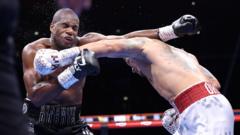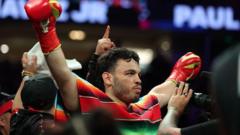In 1974, the African nation of Zaire, now the Democratic Republic of Congo, became the stage for a monumental boxing match that would reverberate across the globe. With presidential support from Mobutu Sese Seko, the fight between Muhammad Ali and the rising heavyweight champion George Foreman was billed as not just a boxing contest, but a spectacle that celebrated Zaire’s potential as a global player.
President Mobutu, despite his authoritarian regime, envisioned the event as a chance to showcase Zaire’s progress to the world. Ali, known for his sharp tongue and bravado, didn’t hold back, even threatening journalists that doubted him with a quip about being cooked in a pot. This boldness caught the attention of Mobutu’s aides, who quickly reminded Ali that promoting peace and tourism was essential to Zaire’s reputation.
The fight ultimately became about much more than just a title. Ali's unexpected triumph, utilizing his famous "rope-a-dope" strategy, reshaped his career and gave Foreman a path to reinvention after his shocking defeat. Years later, the match’s legacy endures, remembered not only for its athleticism but for its cultural significance, symbolizing a crucial intersection of sports, politics, and the aspirations of a nation striving for recognition on the world stage.
George Foreman's passing in 2025 underscores the lasting impact of this historic event, reminding us how sports can unify, challenge perceptions, and inspire change beyond the arena.


















